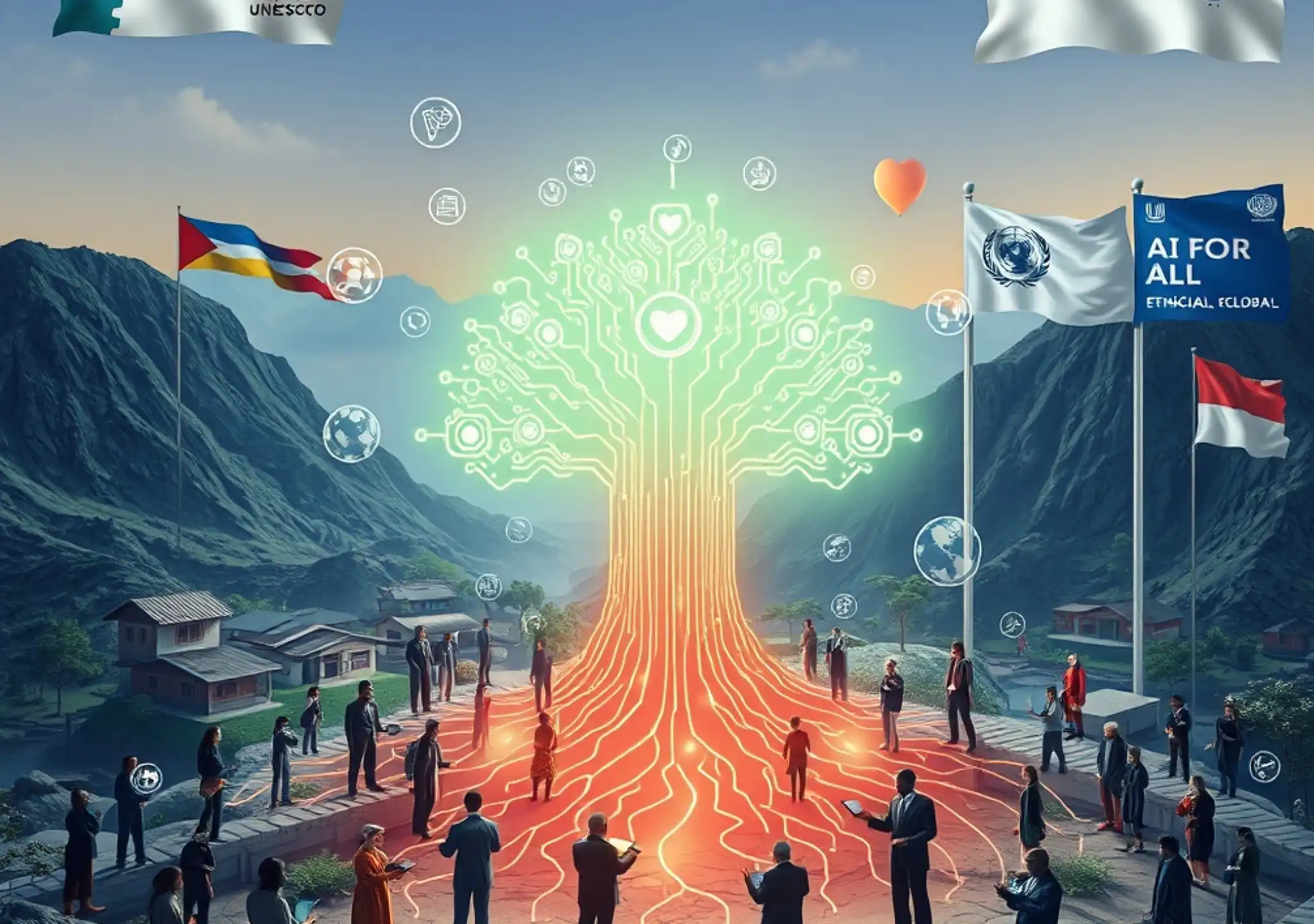UNESCO outlines a global strategy to ensure AI benefits all, not just a few
Artificial intelligence (AI) holds tremendous promise for advancing global development and reducing disparities. Thanks to its ability to analyze data quickly, AI is already extending access to remote healthcare, microfinance, and digital education in developing nations. It also plays a vital role in tackling climate change and reducing housing costs when integrated with 3D printing. Its potential to transform fast-growing cities in the Global South is undeniable.
However, despite these advantages, AI’s role in achieving the Sustainable Development Goals remains largely unrealized. Research by the International Monetary Fund indicates that AI, under its current trajectory, may deepen global inequality rather than alleviate it.
A 2017 report by PricewaterhouseCoopers estimated that nations investing heavily in AI could see GDP increases of up to 14% by 2030. Though predictions vary, one constant remains: the benefits of AI will be distributed unequally across the globe.
The Organisation for Economic Co-operation and Development (OECD) has reported that 75% of new digital patents and innovations are produced by just 250 companies. Among the world’s top 15 digital platforms, eight are headquartered in the United States and six in China. As AI advances, North America and China are poised to reap trillions in profits by 2030, while developing nations may still be grappling with the economic fallout of the COVID-19 pandemic, which has already widened the gap between rich and poor. As author William Gibson put it: “The future is here, it’s just unevenly distributed.”
In June 2020, UN Secretary-General António Guterres introduced a roadmap for digital cooperation and voiced concerns that the digital revolution was primarily serving a small elite. He emphasized the lack of representation of developing nations in global AI conversations and tasked UNESCO with creating a global ethical framework for AI. He noted:
“AI discussions lack inclusion. Developing countries often have minimal presence in key decision-making forums, despite having much to gain from AI-driven development. UNESCO’s work on AI ethics exemplifies how the UN can promote inclusion.”
In response, UNESCO convened a panel of 24 cross-disciplinary experts to draft ethical guidelines. They sought public input through online and regional consultations and citizen workshops in 25 countries. This collaborative process culminated in broad international consensus.
On November 25, 193 UNESCO member states adopted the Recommendation on the Ethics of Artificial Intelligence. This landmark agreement commits countries to move away from AI competition and instead pursue a shared goal: the creation of AI that is ethical and people-focused. AI should be a solution to humanity’s most urgent problems—not a contributor to them.
With this framework now in place, countries are expected to steer the AI revolution toward equity. UNESCO will support governments with training and tools to close the digital skills gap and promote digital inclusion, especially since over half the global population remains offline.
To reduce this digital divide, UNESCO plans to build partnerships between wealthy and less-developed nations. These collaborations will facilitate technology transfers, investments, and capacity-building programs to ensure fair access to AI technologies.
Data privacy is another concern, particularly for individuals in developing countries, who are often vulnerable to data exploitation by private corporations. The new UNESCO guidelines urge governments to pass legislation allowing citizens to view, delete, and seek redress for misuse of their personal data—including compensation in cases of privacy violations.
UNESCO is also pushing for legal frameworks to regulate the AI industry. It will foster international cooperation in AI research and innovation, with a focus on ensuring that developing countries are included and supported.
This is a historic opportunity: The new recommendations champion individual rights and aim to protect marginalized populations worldwide. AI must now be directed toward solving global issues—like rising inequality and the environmental crisis—rather than worsening them.

